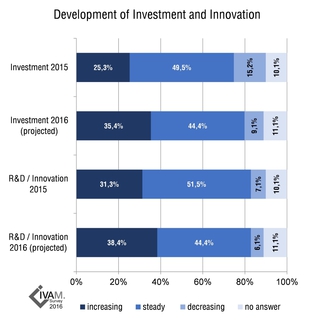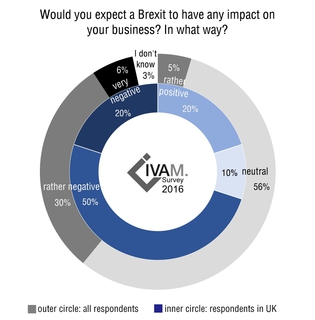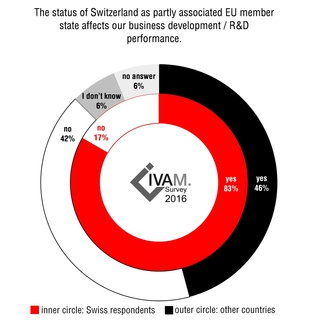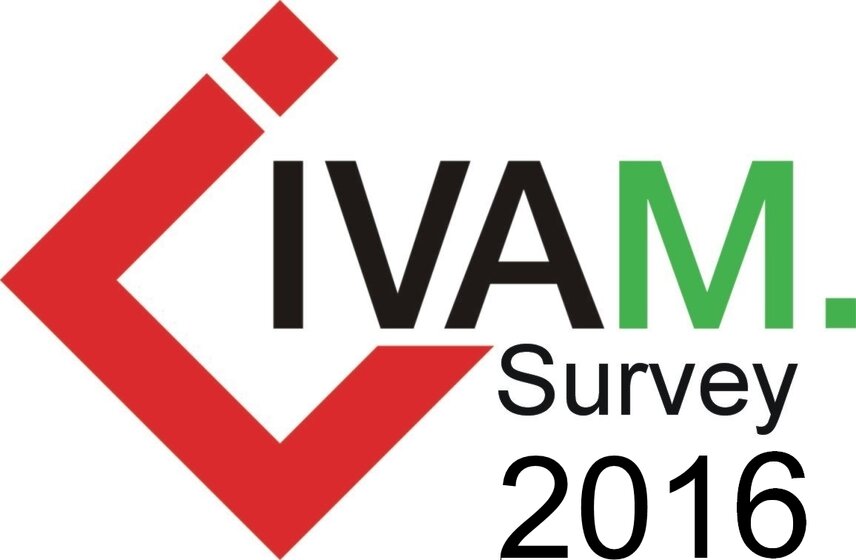Microtechnology industry keen to invest and innovate

In spite of the continued low level of investment in Europe, the microtechnology industry is rather keen to invest and innovate. According to the IVAM Survey, more than a third of all European microtechnology companies intend to increase investments and intensify R&D efforts in 2016. Altogether, the business situation of the European microtechnology industry has continuously improved since 2012. However, the lack of cohesion in the EU and the special status of some European countries slow down the innovativeness of the European high-tech industry.
Britain’s research-intensive high-tech industry fears “Brexit”

Britain's research-intensive high-tech industry fears the "Brexit". 70% of high-tech companies and research institutes in the UK believe an exit of their country from the EU would have a negative impact on their business or research performance.
Economic and financial experts are warning against a withdrawal of Britain from the European internal market: a “Brexit”, they say, would slow down the economic growth in the UK and in the EU and make necessary protracted renegotiations of trade relations.
As part of its annual economic data survey, the IVAM Microtechnology Network has asked companies and research institutions in the research-intensive micro and nanotechnology industry in Europe how they feel about the possible exit of Britain from the EU.
70% of high-tech companies and research institutes in the UK believe an exit of their country from the EU would have a negative impact on their business or research performance. The companies and research institutions in Britain are worried primarily about their innovative capacity and international collaboration.
“Brexit” would weaken UK’s position in trade negotiations with EU
Representatives of the micro- and nanotechnology industry in Europe reckon that as a non-EU member Britain would have a hard time renegotiating trade relations with the EU. More than half of them think the chances of the country to negotiate advantageous trade agreements with the EU are low.
“Brexit” would presumably not have such a negative influence on Britain's position outside the EU. Only 14% of industry representatives think Britain’s chances to achieve advantageous trade agreements outside the EU would be low. The country’s membership in the Commonwealth and its strong ties to the United States would help there.
What would “Brexit” mean for the EU?
The representatives of the European high-tech industry express concern that a “Brexit” would strengthen anti-European sentiments and other EU countries might follow the example of Great Britain. The exit of Britain alone would probably not induce the end of the EU, but combined with the desire for special agreements in other member states and the national-based policies in some Eastern European member states it would certainly increase the risk of disintegration of the EU. Domestic political consequences for the UK would be possible, too, because Scotland might make another attempt to become independent from the United Kingdom in order to join the European Union.
Partly associated status of Switzerland impedes innovation and collaboration

The mass immigration initiative, which a slight majority of Swiss citizens voted for in a referendum in early 2014, has put a lasting restraint on the relationship between Switzerland and the European Union. The EU considers the intended limitation of immigration a violation of the agreement on free movement of persons and has revoked the status of Switzerland as a fully associated member in the framework program Horizon 2020.
Now Switzerland has a provisional status as partially associated country until the end of 2016. This status excludes companies and research institutions in Switzerland from some parts of Horizon 2020.
IVAM has asked micro- and nanotechnology companies and research institutions in Europe if and in what way the status of Switzerland as partially associated country affects R&D, innovation and collaboration.
A huge majority (83%) of companies and research institutions in Switzerland agree to the statement that the status of Switzerland as partly associated EU member state affects their business development or R&D performance respectively.
Swiss high-tech industry prefers future relationship to EU to be regulated by bilateral treaties
The majority of Swiss organizations would like to see their country’s relationship with the EU regulated through bilateral treaties in future. One third would prefer an institutional framework agreement. Only a quarter would welcome full EU membership.
Respondents in other countries are more often than the Swiss in favour of a full EU membership of Switzerland: on the one hand, to strengthen cooperation with Switzerland, on the other hand, in order to reduce the number of special arrangements and provide clearer guidelines concerning the rights and obligations of EU member states.



